What’s Tokyo’s scent? How does Gdańsk smell? What about Naples or Abu Dhabi? What are we all guilty of when buying a perfume, and can anyone truly tell the difference between a perfume that costs € 400 or one that costs € 60? On our trip to London, we did an aromatic lap of the world and increased our lexicon with an invaluable new English word.
Coincidences, you’ve got to love them. We’ve all experienced these slight twists of fate, but how big and far can they go? Take this one, for example. In English, there’s the verb “to gallivant”, where you jaunt from place to place without worrying about other things, which is exactly what we were doing in the London borough of Hackney when we bumped into Nick Steward, the founder of the boutique perfume brand which leans into the verb with its whole being: Gallivant.
Nick ended up inviting us into his workshop-cum-boutique. The scents that he introduced us to on this trendy street in Hackney are love letters to places Nick has visited, and his wallet-friendly perfumes are designed to appeal to anyone that sees themselves as an urban explorer. Nick’s clearly onto something: Gallivant has won a ton of awards, can be found in 30 countries, and is one of the best-sellers in the department store favoured by the British royal family. And no, as Nick explains in our interview, this ostentation is in no way jarring with his less-is-more philosophy. But what can be jarring is seeing consumers make the same mistakes on repeat (don’t worry, we’ll make sure you don’t do it again!).
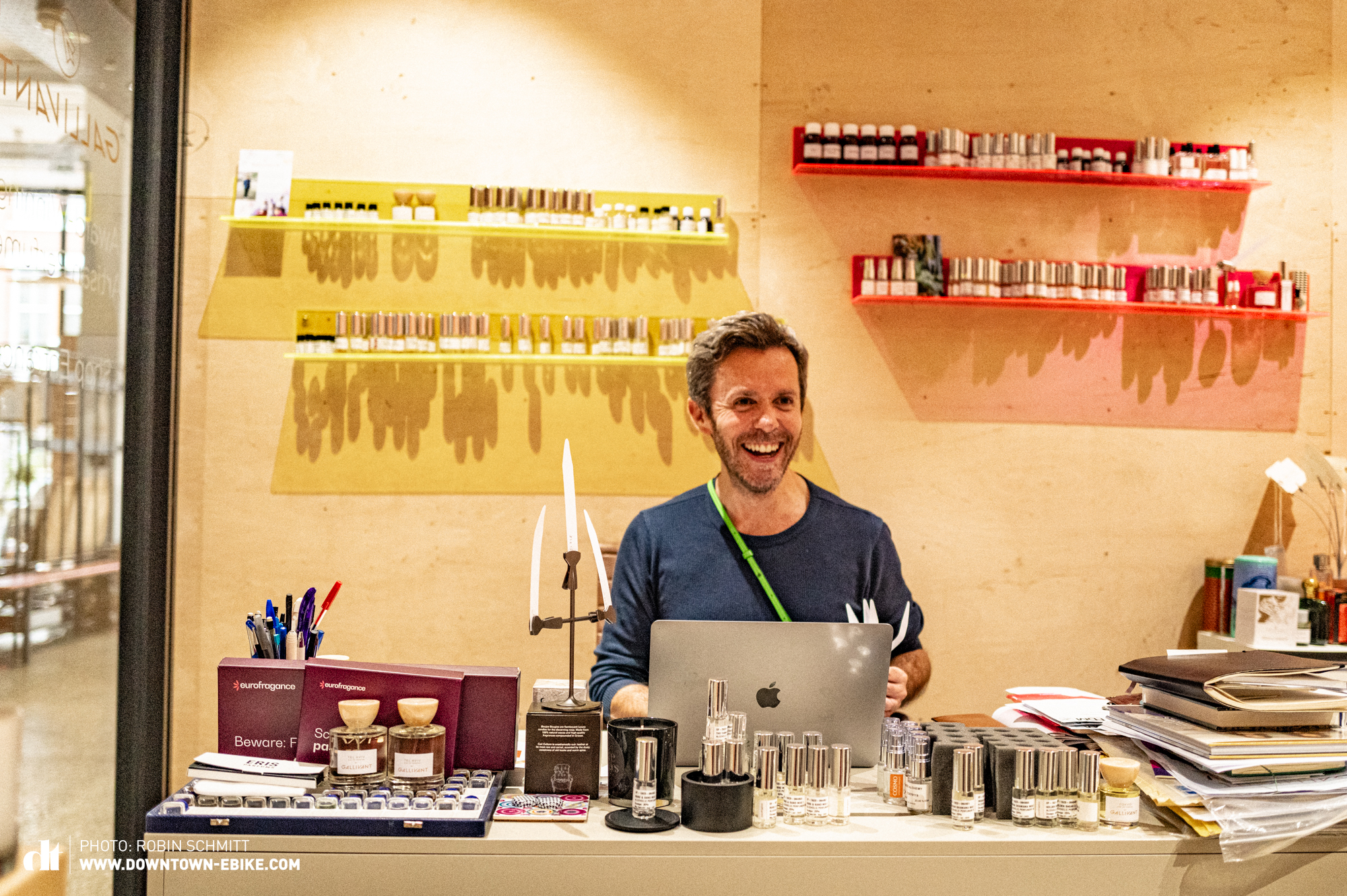
DOWNTWON:
Nick, thanks for forcing us into your showroom.
Nick:
Well, thank you for being curious. It was a sort of impromptu visit. Hopefully, it is a pleasure. It is from my side, so…
DOWNTOWN:
It is, thank you. Honestly speaking, we aren’t really into perfumes, but you’ve made us curious. What are the biggest misconceptions that people have towards perfumes?
Nick:
Oh, that’s a big question. I think the main one is that you are very intimidated because, sadly, big brands have been able to use advertising to give you the idea that perfume is all about seduction. Perfume can be about seduction, but, above all, perfume is a pleasure. It’s a simple pleasure that I can’t imagine my daily life without. So, I just want to invite you all to think about the senses and the pleasure it can bring into your life. It doesn’t need to be overly glamorous. It doesn’t need to be overly sexy, whatever that means. It’s just a pleasure. Like listening to a piece of music or eating a beautiful meal.
As we’ve been talking, Nick’s colleague Souad has returned and wants to make it clear that if you’re looking for a “sexy” perfume, you won’t go very far.
Souad:
What I find weird is when a customer asks me about the sexiest perfume we have. I can’t really advise on that because I don’t know what their partner or the person they want to impress would find sexy. Everyone’s sexual pleasure is different. So, how would I know what senses would drive their sexual pleasure? I find this really peculiar. I’d say our perfumes are all sexy depending on what you like. Something that could be a real turn-on for me could totally kill the mood for someone else. If you don’t like the jasmine flower, let’s say, and I give you Tel Aviv and say, “oh that’s super sexy,” that person’s going to hate you because you’ve just reminded them of all the bad things that they associate with jasmine flowers.
You are wearing the product. The product is not wearing you.
Nick:
It’s the weirdest question, isn’t it? It’s going be different for everyone. Sometimes the sexiest outfit can be a white shirt and blue jeans, right? Because the person somehow gives off something. Sadly, that’s how we’ve been educated through big brand advertising over decades.
Souad:
It’s that “less is more”, isn’t it? When everything’s on show, it doesn’t necessarily mean sexy.
Nick:
I think sometimes it doesn’t leave very much else to facts. You know, perfumery is also very invisible. It’s not like if I was wearing a latex outfit, which screams “this is an attempt to be sexy”. Sometimes in perfumery, the sexiness comes from the person wearing it as much as from the perfume itself.
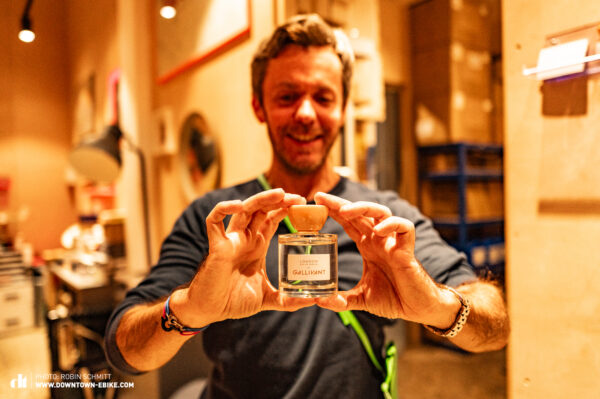
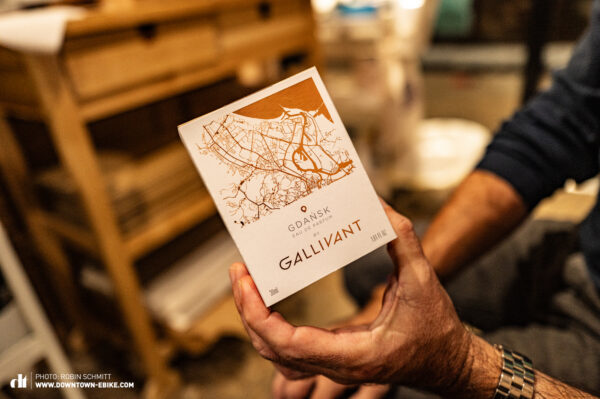
DOWNTOWN:
Walking through the streets, you sometimes smell some really strong scents that seem to cover the whole person using them. You can’t perceive the human being wearing it anymore. Would you say that there are good and bad scents?
Nick:
I think I would be very loath to say there are good and bad scents or perfumes because beauty is in the eye of the beholder. If that customer is happy wearing that, I’m happy for them. But perfumery doesn’t have to be loud or invasive of other people. I think at the moment we’re a little bit in danger of forgetting that perfume can also be subtle and quiet.
Part of my philosophy as a perfume maker is that you as the human are wearing this. The product is not wearing you. I think that’s very important. On some occasions, perhaps I’d want the volume of a perfume to be turned up a little bit, but I don’t need it to be screechy and loud. There’s a trend in perfumery that comes from synthetic notes, which is very high volume, but a bit again, like music. Sometimes the harder you press, the sound isn’t always as nice as you expect. A soft touch is welcome in everything, I think.
DOWNTOWN:
What ingredients does Gallivant use then? And is natural always better than synthetic?
Nick:
Life is complicated (laughs). So is perfume. I would say that modern contemporary perfumes of the style that Gallivant makes are always going to be an alchemy of natural and synthetic. Sometimes we use synthetic notes as natural substitutes, quite simply because it’s better for the environment. Think of the sandalwood trees in southern India as an example. The forest was decimated in order to provide the perfume industry with an ingredient. Now there’s none left, they’re trying to regrow, but it’ll take many, many years. In the meantime, we have a substitute for nature. Maybe if we’d had the substitute to begin with, people wouldn’t have chopped down the forest. That’s my argument. As an industry, we have to be intelligent and make thoughtful choices about where natural is best or whether a substitute can do the same. It’s an ongoing conversation within the perfumery industry, but it’s not black and white.
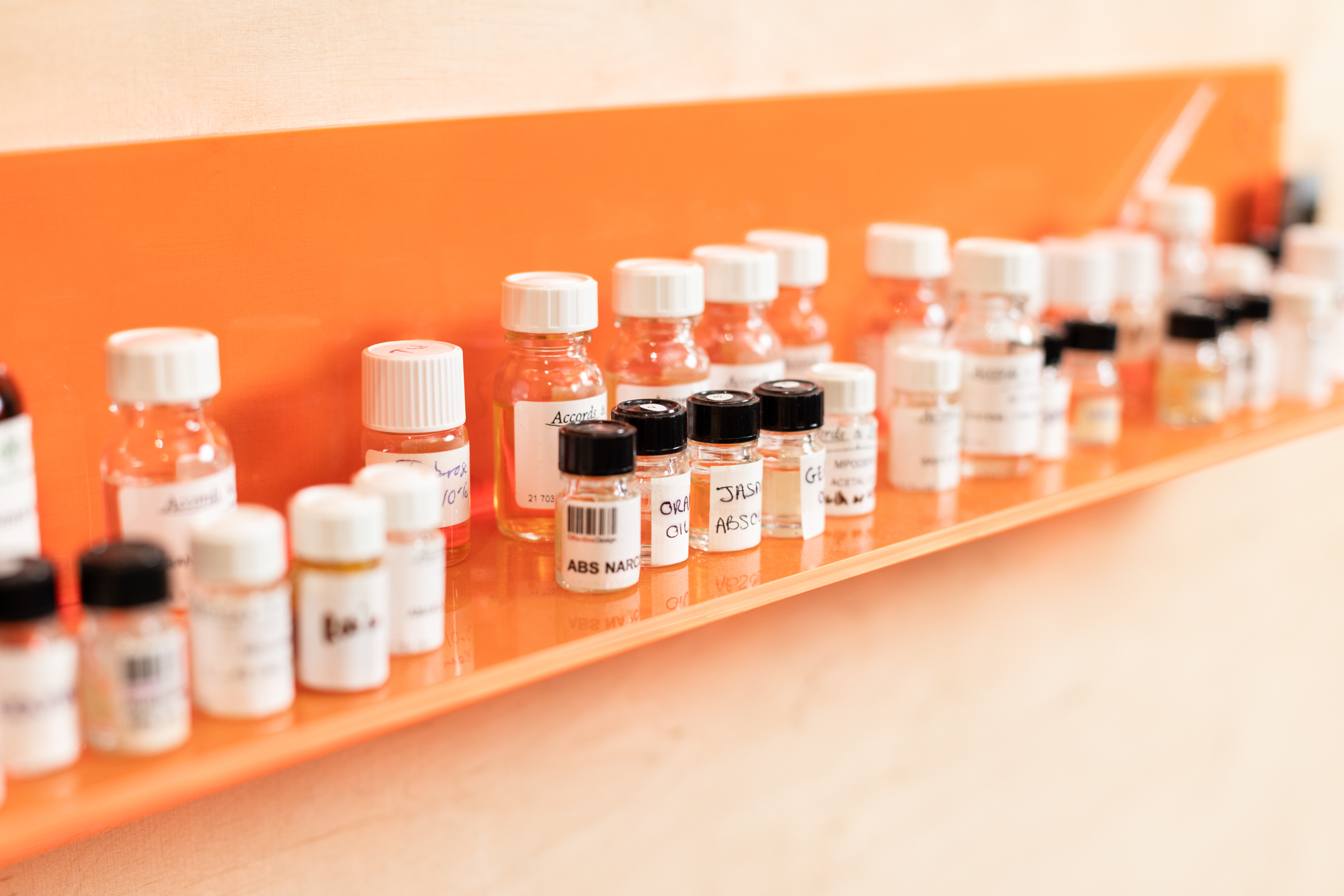
Keep things natural as much as you can but use substitutes where it’s better for the natural world.
DOWNTOWN:
Talking about composition, you mentioned working with several perfume creators. What’s the dynamic there? Where do you fit into this – are you essentially “the brand”?
Nick:
I suppose I’m the conductor of the orchestra. I have to be able to read the music. If I couldn’t read the notes myself, how could I conduct an orchestra? I have to have a feeling for the color of the composition in order to make it. But I am entirely dependent on a talented supporting cast – a talented group of people that work together in really genuine harmony to create something beautiful. There’s no one single genius. I don’t like it when the industry claims that there are these celebrity perfumers and they’re geniuses. They’re always working with a team. And the more that we understand that they’re part of an ecosystem and a team, the better it is for the perfumery industry, I think. It’s a bit like saying a celebrity chef has single-handedly cooked everything in the restaurant. He hasn’t gone out and sourced all the materials himself. He’s probably not cooking every meal in his restaurant that carries his name. It’s no different in perfumery. You need a small village.
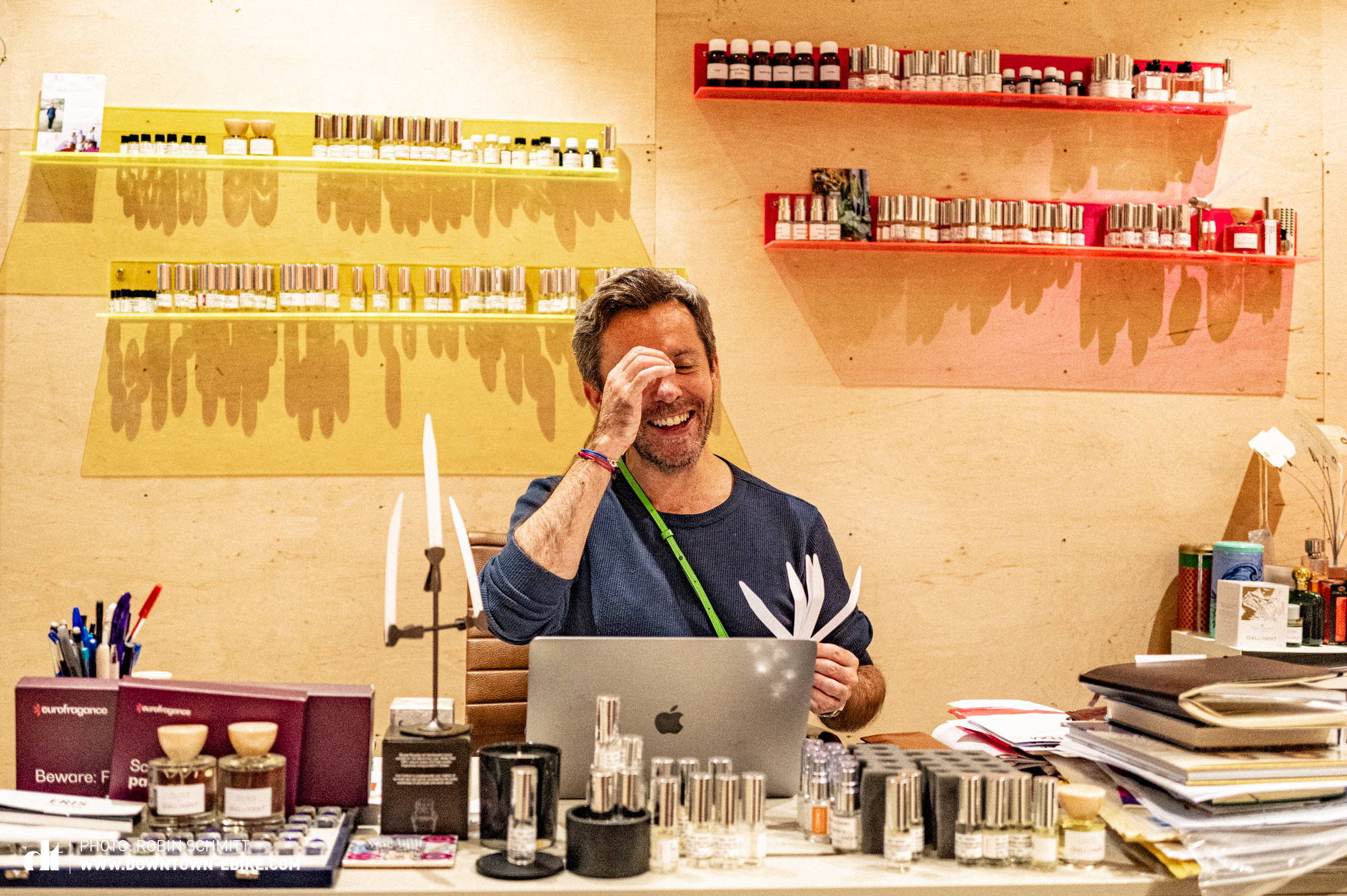
When I started Gallivant, I longed in some ways to go back to basics, to something more simple, more humble. Personally, I’m not really that interested in this idea of scaling a business very quickly. I want to do this slowly on a very human scale. That’s what excites me about my business. Meeting people. Isn’t that a nice thing? Sometimes we forget that in this modern business discourse.
Each perfume is a love letter to somewhere I’ve been, a celebration of the world around us.
DOWNTOWN:
What does Gallivant mean?
Nick:
Gallivant is a very special word in English. It means to go around and travel in pursuit of pleasure. It is a word that my mother uses a lot, used with me. She would say, “Ah, where have you been off gallivanting?”
Travel, accordingly, is my other passion. I’ve traveled to over 50 countries now. I just traveled from London to Morocco, overland by train. I travel for pleasure, but I also travel for inspiration. We may see a Moroccan perfume in a year or two, or three or four. Not Marrakesh, though (laughs). There are other places I found more inspiring, more authentic, actually.
Each of the perfumes is a love letter to somewhere I’ve been and felt a connection with, a vibration. Our job is to translate that vibration into a formula and ultimately into a perfume that I hope you’ll love wearing. It’s quite simple. It’s a celebration of the world around us, an exploration, and the joy of being curious about the world we live in.
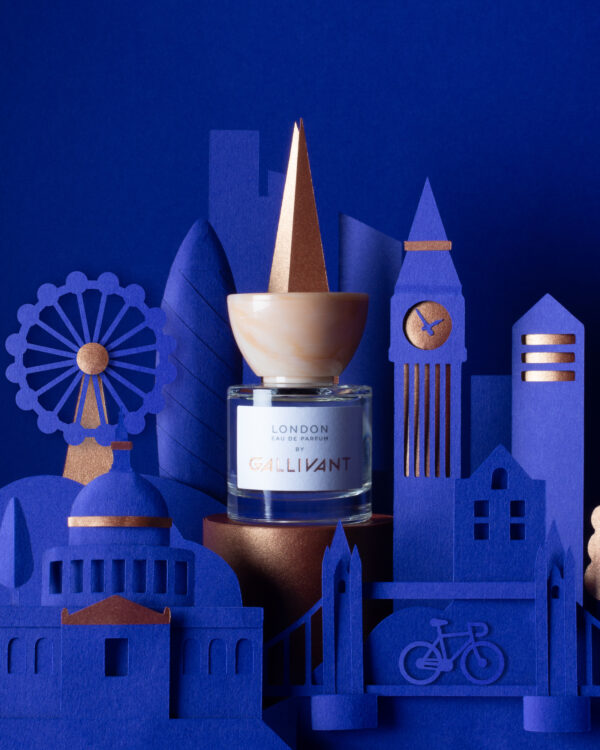
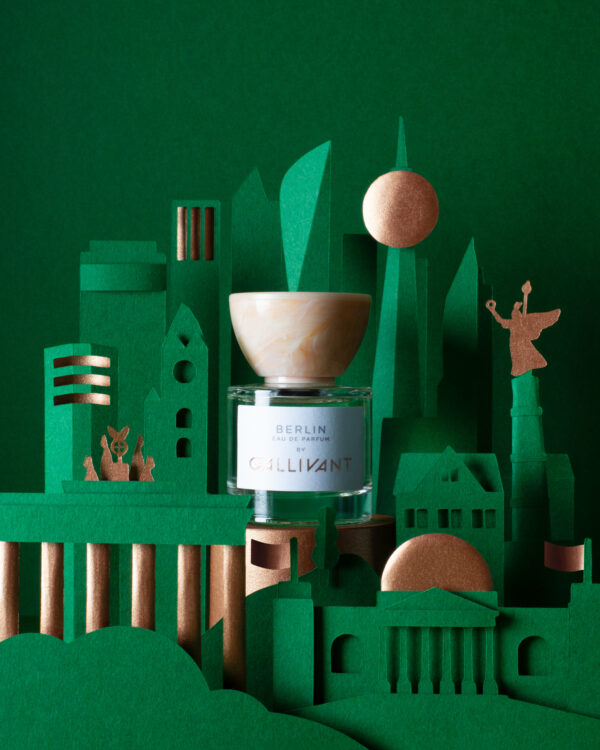
Gallivant’s portfolio of 12 perfumes are each a love letter to a location that left an imprint on Nick Steward.
DOWNTOWN:
Would you say that perfumes change over time? Look at N°5, it’s been out for over a hundred years.
Nick:
Yes, absolutely. This is another misconception about perfumery – that it’s not a living, evolving thing. It has to be, by the very nature of it. Materials that we had a hundred years ago have changed. Natural materials. It seems obvious to me, but sometimes customers don’t understand that the rose that was harvested in Grasse in May, 2018, is going to smell slightly different to the rose that was harvested the following May from the same soil. There are always discrepancies, or you could call them imperfections. Every formula changes over time. We have to learn to accept that. It’s the nature of the beast.
DOWNTOWN
How big is Gallivant?
Nick:
Well, we are probably bigger than people imagine in the sense that we are sold in over 30 countries around the world. We have around 70 retail partners. This little workshop you see here, probably doesn’t give you the idea of the reach of our business. We’re sold in Fortnum & Mason in Central London, which as you may know, is where our Royal Family shops. It’s a very special store and we are one of their top brands. So small is mighty too. It’s wonderful when people talk about wanting to help small businesses. And as a trend, I obviously applaud it, but I think small businesses can be mightier than they can seem as well. Because we’re passionate about what we do. We believe in it. I want more people to smell my perfumes (laughs).
DOWNTOWN:
What is it that gives you satisfaction in your job?
Nick:
I feel so privileged at the end of the day, I go home and I think, oh, I’ve created this. I made this today. And that gives me an immense feeling of satisfaction. When I walk into a shop and see our perfumes on the shelf and think we made those, we filled those bottles, we labeled them, it’s a really, really wonderful feeling.
And then when I see a customer pick it up off a shelf and spray it on themselves, and I watch their facial expressions, it’s also a real privilege. When you see people smile,you realize you’ve brought a moment of happiness into someone’s life. And I really couldn’t put a price on that feeling. It’s wonderful. I’m very lucky.
Don’t always be asking the question of how long something is going to last.
DOWNTWON:
I know you don’t like that question, but how long do your perfumes last?
Nick:
I think a perfume should last on your skin between six and eight hours depending on the formula. Something that’s very fresh won’t last too long. Just like citrus notes, which are very volatile molecules. Don’t ask them to last too long. They can’t do that because it’s not in their nature. But something that has heavier resonance is by its nature more of a fixative on your skin. It will last longer. So, if you’re a person that wants a perfume to last longer, make sure you are going to the right side of perfumery. If you are going to the ambers, for example, resinous, balsamic perfumery, they’ll last longer. But if you spray something on that’s fresh and sparkling, like the bubbles of a glass of champagne, it’s a fleeting pleasure. It won’t last eight hours. You ought to enjoy the moment.
Don’t always be asking the question of how long something is going to last. It’s the wrong question in some ways. When I listen to a beautiful piece of music, it might last three minutes and two seconds and I’m so happy to have heard it. A longer remix of a song, seven minutes and 48 seconds is a different experience. I don’t judge them side by side, so don’t judge your perfumes side by side. Things are designed with different intentions. Our Brooklyn perfume – which is really all about the fizz of this urban playground to me, with smells of grass, fresh orange juice, champagne – is a very fleeting moment. It lasts a couple of hours, like a picnic in a park. It doesn’t last overnight. Not everything lasts the same. Not everything feels the same and we don’t want it to.
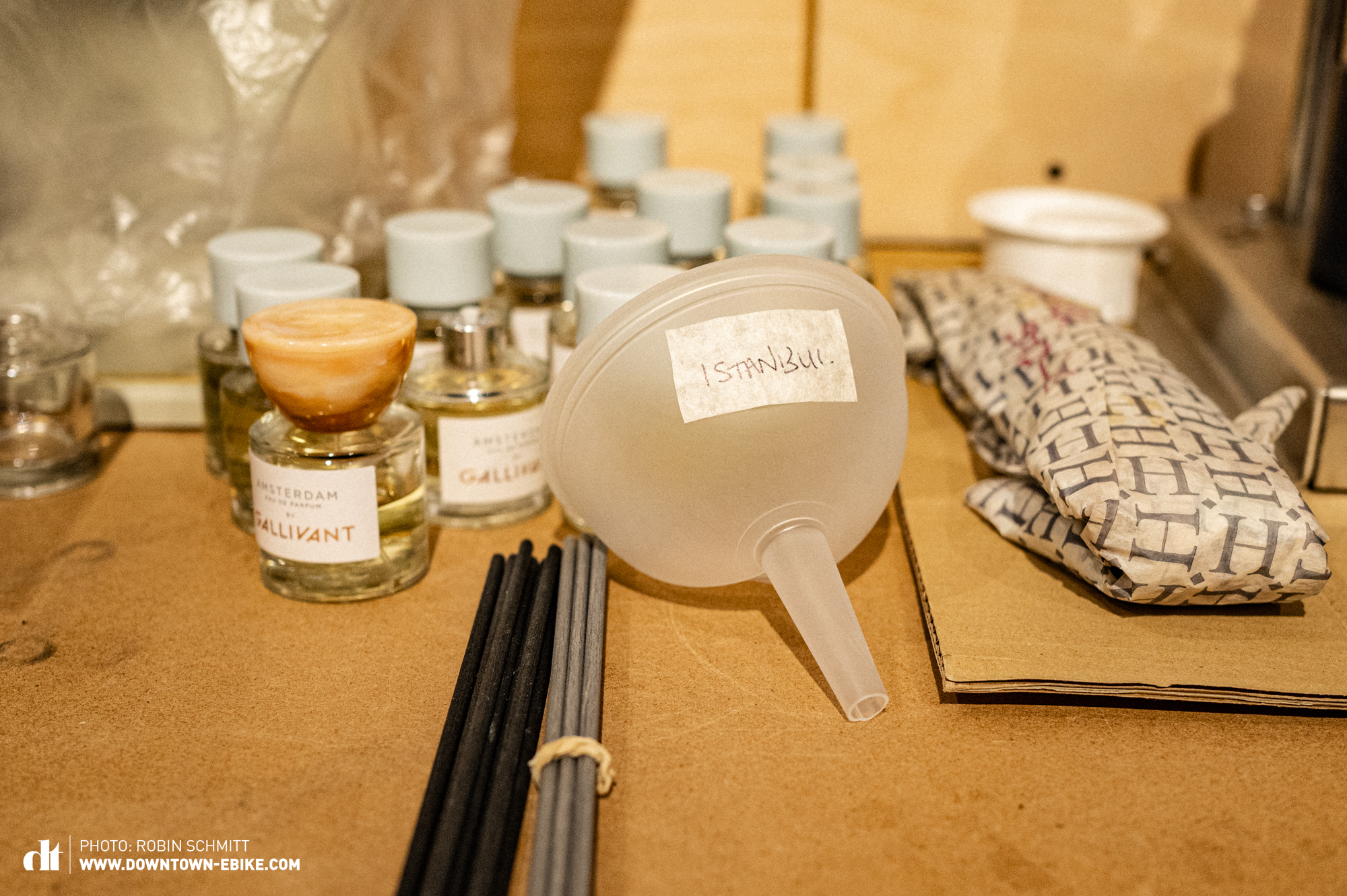
Not everything can be love at first sniff.
DOWNTWON:
Are there any other tips you can give when it comes to choosing the right perfume? Should we look at the list of ingredients, for example?
Nick:
Don’t worry about ingredients and jargon. You don’t have to learn a whole new vocabulary to enjoy this. Just test things. Be curious. Try them on your skin. Try them two or three times. Not everything can be love at first sniff. And when you go perfume shopping and they tell you a list of ingredients that oftentimes they don’t even really know what these words mean, blank it out. Listen, trust your own intuition. It’ll tell you what you like and what you don’t like. I think the most important thing is to take your time. Don’t let the salespeople try and rush you into making a purchase. You can say, I’d like to try it on my skin. I’ll come back later.
DOWNTOWN:
This reminds me of the tasting of a wine, you need to give it some time, especially red wine, before you taste it. When I tried out one of your perfumes, you told me to wait and not sniff immediately.
Nick:
(Laughs) I’m worried sometimes when I see customers, I see people in duty free spraying things on, and I know they’re rushing for a flight. They’re going to buy this perfume but I think they don’t even really know what they’re buying. They haven’t heard the whole ensemble yet.
It’s a lot to ask for, isn’t it? Patience. In a very speeded up world. Sometimes I tell my customers to remember that the joy of discovering a new perfume is also the pleasure of slowing down and discovering something that you don’t know yet. And that in itself should be an enjoyable piece of gallivanting. Exploration. I hope it’s an enjoyable process – it’s meant to be.
The important thing is to spray a decent amount on skin. On a pulse point, for example, because the blood circulation is stronger, the perfume will warm up a little bit more and will diffuse a little bit better.
Leave it for about 60 seconds and then you can smell. If you smell too quickly, you’re just smelling the ethanol that evaporates first. You’re not really smelling even the top notes of the perfume. The top notes are those which evaporate first. But if you want to smell a beautiful amber, you’re going to have to spray it on your skin and wait a couple of hours.
The note won’t come through and express itself in its full beauty for several hours. This is why we talk about slow perfumery. It can’t be rushed.
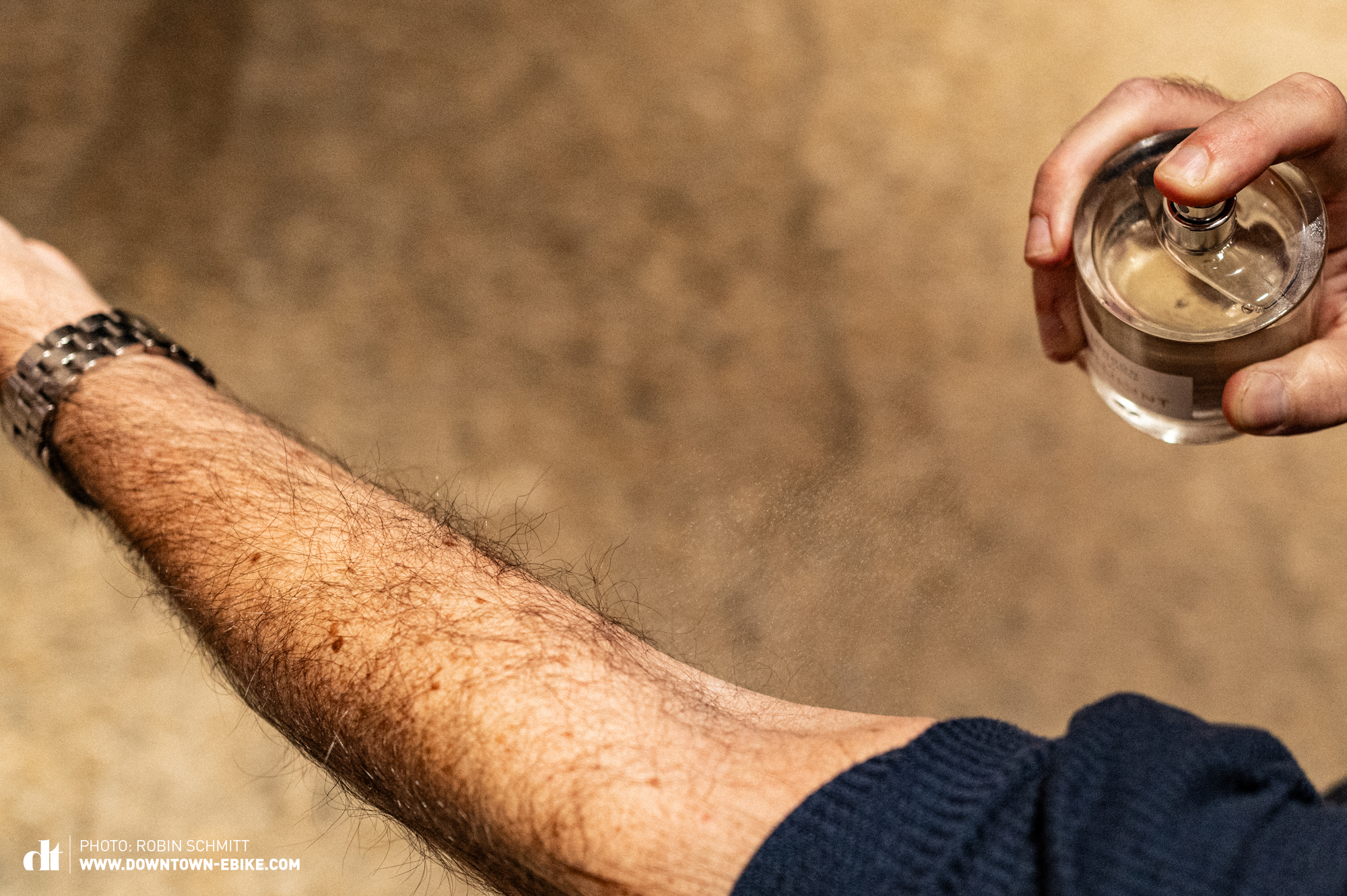
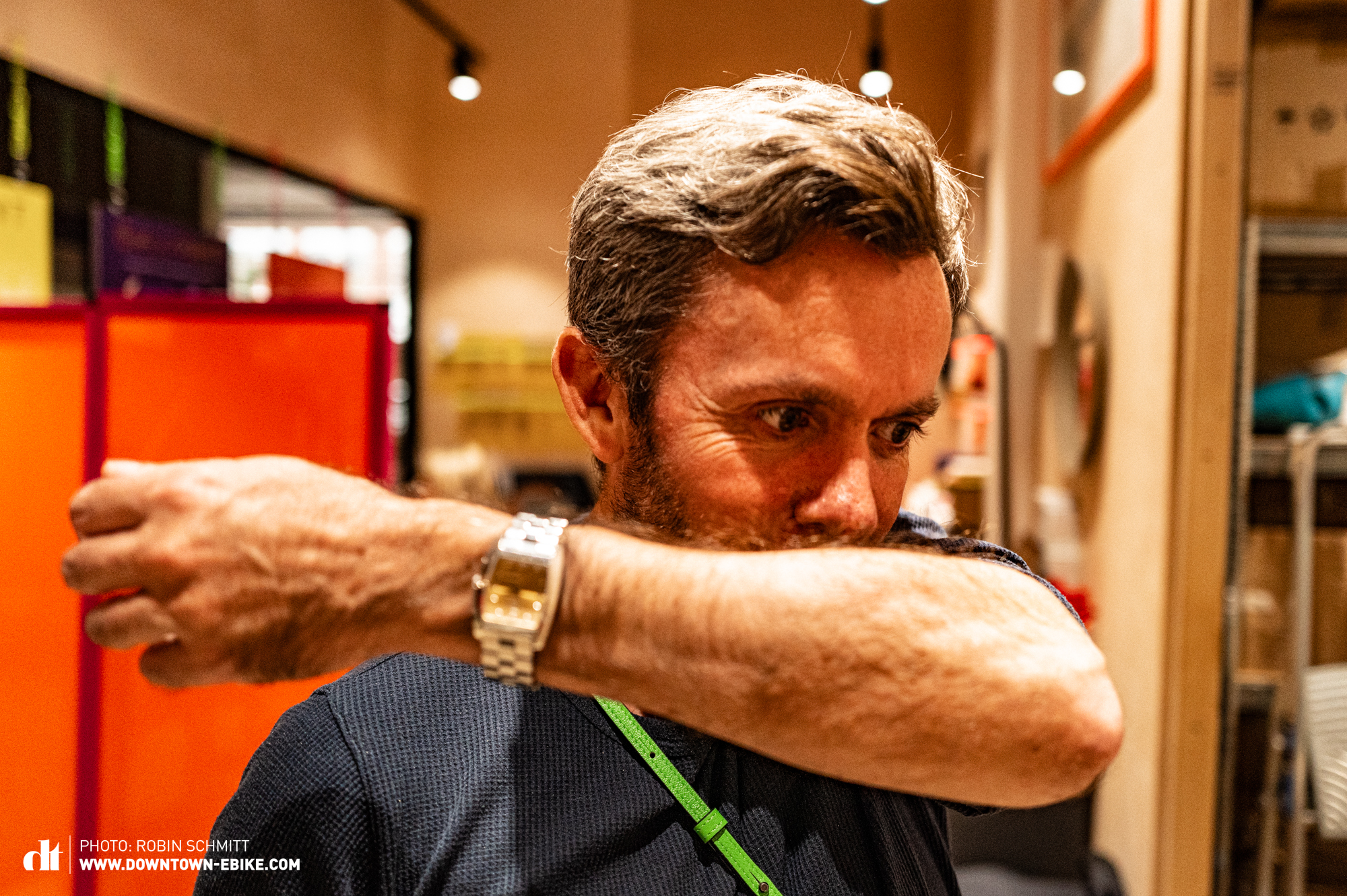
The other thing I would always try and encourage people to think about is that just because something is very expensive – € 300 or 400 – it doesn’t necessarily mean that it’s better than something that costs € 50 or 60. I know we live in a world where people think that expensive means better, but sometimes it’s just very powerful marketing. I’m very clear with my brand Gallivant that I want all sorts of people to enjoy our perfumes, which is why our pricing, I hope, is reflective that we hand-make our perfumes, but it’s also pretty democratic.
I love the idea that all sorts of different people wear it. That’s a lovely thought for me.
Full disclosure: We ended this conversation with the immediate desire to douse ourselves in a Gallivant perfume (London or Naples, if you’re wondering!), but Nick didn’t let us. Instead, he thrust the Nomad testing set into our hands, which you can get online. His reasoning: This is the perfect platform to begin your own perfume travels, with a new experience each day. It struck us what a coincidence this whole experience had been – we’d been pulled into his workshop, where we’d dived into a new world and come out richer (no, not actual wealth) and more inspired. A spontaneous, unplanned trip – but isn’t that the best way to explore the world?
Not everything in life can be listed on your to-do list. There are experiences you don’t immediately need to tick off. For some things, it’s the process of discovery that gets your heart racing. A lot like Gallivant, really. We said goodbye and carried on gallivanting around the capital…
Click here for the fragrant: gallivant-perfumes.com
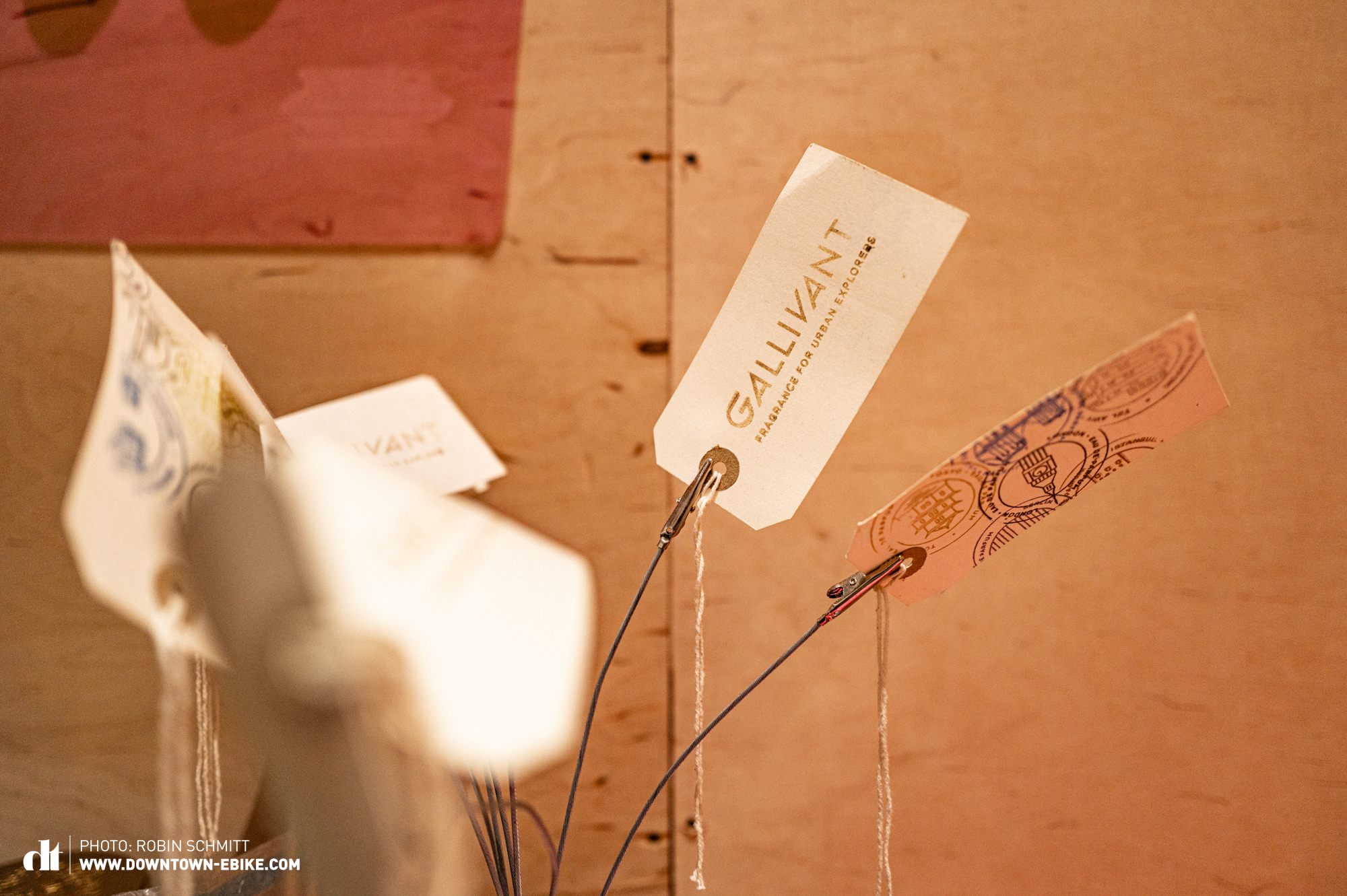
Words: Robin Schmitt, Felicia Nastal Photos: Robin Schmitt







